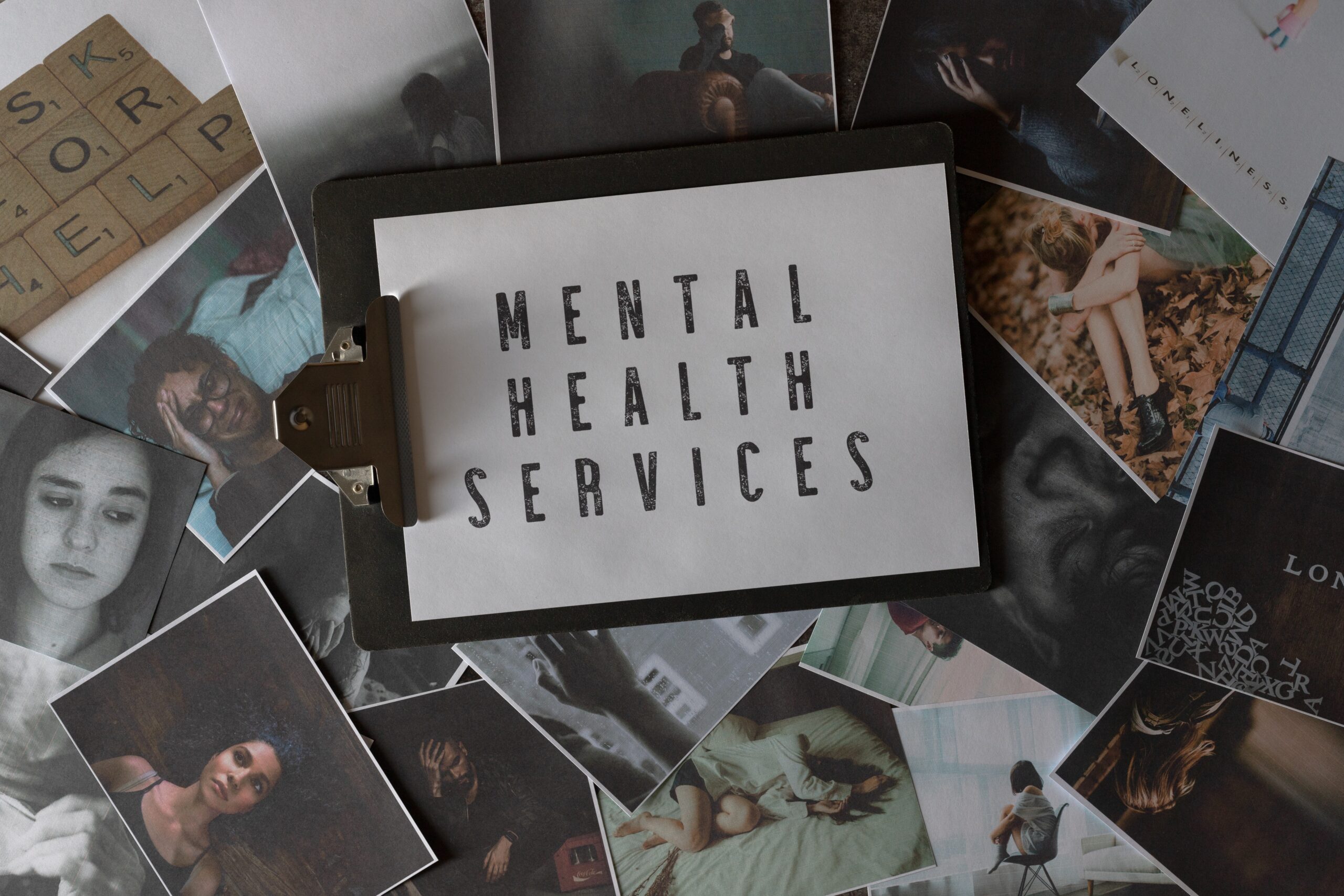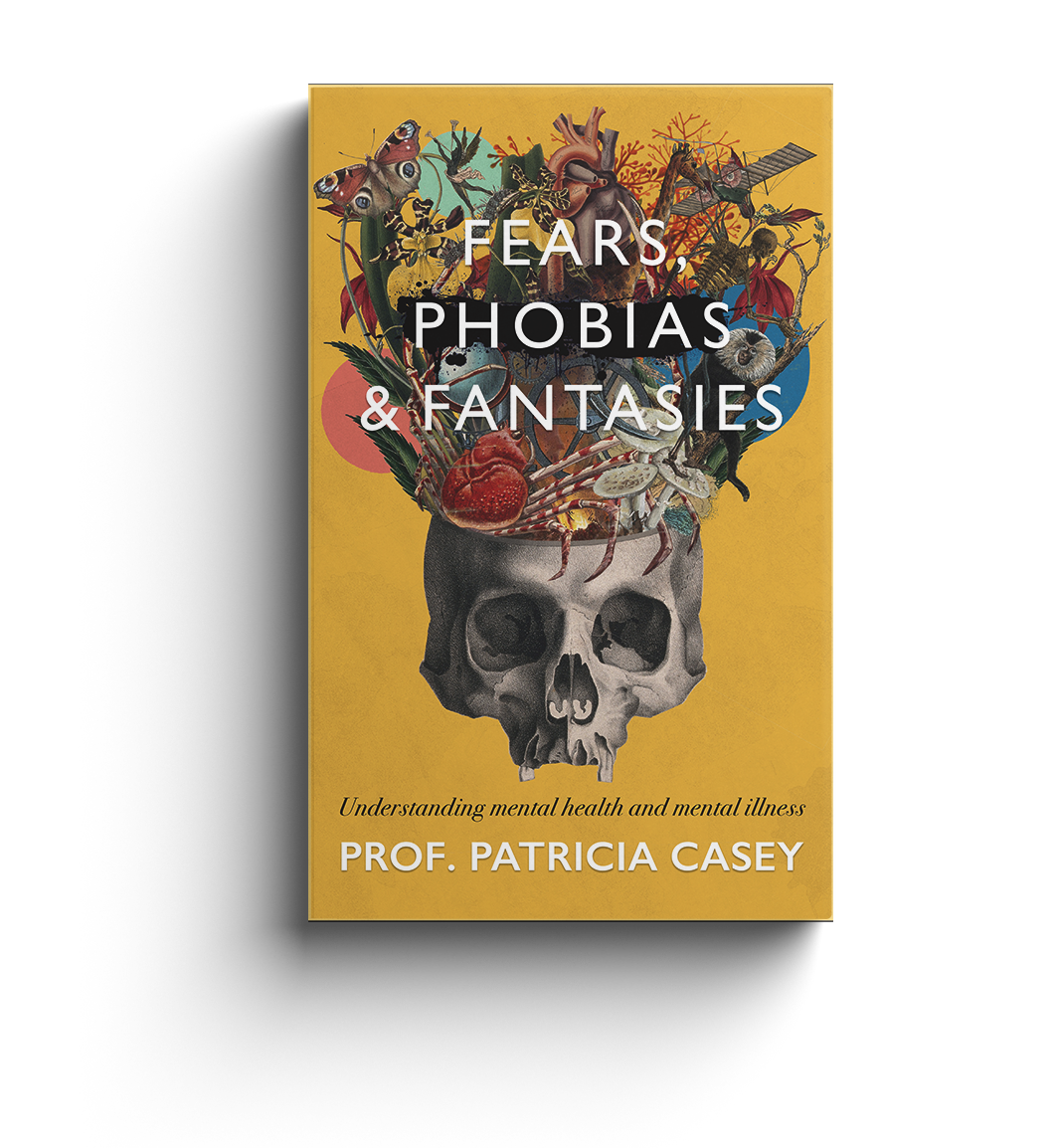Exclusive extract taken from Prof. Patricia Casey’s latest book Fears, Phobias & Fantasies: Understanding mental health and mental illness (2021)
What Happens at a Psychiatric Consultation?

The general public’s information about a psychiatric consultation is gleaned mostly from movies such as Analyse This, with a solemn-faced, bespectacled, bearded, psychiatrist listening to a gangster, sometimes lying on a couch, disclosing how he loved his mother. The psychiatrist doesn’t ask questions, just makes the occasional observation, culminating in the gangster crying inconsolably and renouncing his evil ways, for the time being at least. To describe such a scenario as inaccurate is a grave understatement.
The consultation is nothing like that: it is more structured and focused, with the specific goal of arriving at a working diagnosis and deciding on a treatment plan (Burns, 2014).
REFERRALS FOR ASSESSMENT BY A PSYCHIATRIST
You will require a referral from your GP to see a psychiatrist. Sometimes the referral may come from a hospital-based doctor, such as one based in the emergency department, if you have attended there, or from a surgeon or physician who may be involved in your treatment. When the GP refers you as a public patient it will be to a psychiatrist who covers the geographic area in which you live. The reasons for this are administrative and are explained in Chapter 2. Alternatively, if you so wish, you can be referred to a private psychiatrist, without any geographic limitations. You will see the doctor in the outpatient clinic in a hospital or health centre. Occasionally, if you are elderly or housebound, the consultation may take place in your own home.
EMERGENCY REFERRALS
Emergency referrals are made in acute and urgent circumstances, usually if there are concerns that the person is acutely psychotic or is a suicide or homicide risk. They will usually be made to the outpatient clinic. In the circumstances of such a referral, the initial contact may be with a psychiatric nurse and/or the junior doctor, who takes a history, followed by an interview with the consultant. From this a treatment plan will be provided.
The second route for urgent referrals is through the emergency departments. This route will be taken if there is no outpatient clinic that day, or if the referral is made outside normal working hours. This process differs slightly from the outpatient route. You will be seen on arrival by a nurse and triaged to a specialty (e.g. adult psychiatry) with an indicator of the urgency of the presentation. You will then be seen by the on-call psychiatric term doctor, or, if self-harm is the reason for referral, by a dedicated self-harm nurse specialist. This will be followed by a discussion with the responsible consultant psychiatrist and a decision regarding treatment and follow-up.
THE FIRST VISIT TO THE OUTPATIENT CLINIC
For a non-urgent referral, at the initial visit to a psychiatrist in the public health system, you will usually be seen initially by a psychiatrist-in-training. The initial interview may last an hour or sometimes longer: it depends on the complexity of your symptoms and problems. The history obtained will then be discussed with the consultant, whom you will then see unless they are absent for some reason (e.g. if they are attending to an emergency or on leave). Questions arising from the history will be clarified, and your diagnosis and possible treatments will be discussed. If the consultant is away, a consultant colleague should be covering their work and you may be seen by that person instead.
The myth that the patient is on a couch is commonplace, but this is not how any psychiatrist in Ireland treats their patients. When seen by a psychiatrist you will be sitting in a chair and the doctor may be at an angle to you or, less frequently, behind a desk directly opposite you. If a close family member or friend has accompanied you, a separate interview with that person should be offered at the consultation. This interview is advisable, but it will not be done without your permission.
Obtaining independent information is helpful in clarifying the impact that your symptoms have on your family, your work and your day-today living. A person who knows you well is in the best position to offer this information. The history you have given will not be shared with that individual, nor will the information they have given be shared with you. The interview with another person may also provide additional information about previous episodes of physical or psychiatric illness that you have forgotten about. The combined history from you, from the GP, from your family member or friend, and from any previous medical records will help clarify:
- If a psychiatric diagnosis is present;
- What that diagnosis might be;
- How severe is it in terms of its impact on your relationships and day-to-day functioning;
- If you are at risk of harming yourself or anybody else;
- What treatment is best for your constellation of symptoms and problems; and
- If there are background factors that in themselves need attention from other mental health professionals, such as a psychologist or an occupational therapist.
WHAT QUESTIONS WILL I BE ASKED AT THE INITIAL INTERVIEW?
The initial interview with a person whom you most probably have never met is often very frightening. People sometimes tell me they didn’t sleep for a few nights beforehand, they rehearsed what they would say (even though they have no idea what they will be asked), or they Googled the name of the consultant to reassure themselves that they are empathic, pleasant and thorough. These fears and uncertainties are perfectly understandable. For our part, we psychiatrists are cognisant of the reality that those whom we see are meeting a complete stranger and, over the course of an hour or so, that person is expected to open up their heart and mind to this stranger. This is a huge demand and expectation. The doctor’s demeanour at the first interview may thus dictate how you will relate to your psychiatrist thereafter.
The interview will have two broad goals. The first is to get an overall understanding of your symptoms and your background so as to give a context to your problems. By that we mean why has this person developed these symptoms at this time? The second is to arrive at a diagnosis so that appropriate treatment can be offered. The interview is wide ranging and may probe personal and intimate areas, depending on the reason for referral. If you referred with low mood, the questions will focus on symptoms and personal circumstances related to low mood. The psychiatrist is not there to judge but to offer an intervention to assist you. All the information is confidential except in cases where there is a risk to you or to others. If sexual abuse is disclosed and the perpetrator is still alive this must be reported to the relevant authorities. It is important to be forthcoming and honest: the more your psychiatrist knows, the better they will be able to understand your situation and respond with appropriate, evidence-based interventions.
WHAT NEXT AFTER THE INITIAL ASSESSMENT?
At the end of the first evaluation in the outpatient clinic, the psychiatrist will usually recommend a course of treatment; it will be psychological, pharmacologicalor both. A psychological treatment such as cognitive therapy, and a pharmacological treatment such as an antidepressant, will be discussed.
Of course, if no mental illness is present, you will be advised of this. The treatment recommendation will be followed by discussion with you and, if necessary, with the person accompanying you, and treatment will proceed only with your agreement. It may also be suggested that other mental health professionals are involved in your care, with home visits from the community mental health nurse, attendance at a day hospital for some hours on certain days, or referral to a psychologist for talking therapy or for further assessments, such as memory or personality assessments. If you have been having difficulties with work, an occupational therapist may be asked to establish the nature of the problems; if you are not working because of the severity of your illness, an evaluation of your ability to care for yourself, to budget and to do shopping may also be required. A social worker may be asked to assist with practical matters such as obtaining a medical card, a travel pass or other benefits.
If your symptoms are interfering with work or education, you may be advised to take time off. Your GP will provide you with a certificate of sickness at the psychiatrist’s request, and this should be given to your employer. The psychiatrist, community mental health nurse, psychologist and occupational health therapist together comprise a team of mental health professionals known as the multidisciplinary team (MDT) – although not all teams are fortunate enough to have the full complement of members mentioned above. Others, that are well resourced, may additionally have music or art therapists, lifestyle coaches, family and relationship therapists and counselors.
In the early stages of treatment your case will be discussed with the full team to consider which, if any, additional therapists or evaluations need to be involved in order to provide the widest possible response to your needs and treatment requirements. On completion of the first interview you should be told what the likely diagnosis is, if possible. However, this may be unclear at this stage, and, if so, you should be advised of this. After the first interview a letter is usually sent to the referring doctor as to the working diagnosis and treatment plans. Follow-up appointments will then be offered with one of the doctors (the junior doctor or consultant) and/or other members of the team, as required. Occasionally, referral to the day hospital for more intensive evaluation and treatment is recommended. If you are acutely ill or actively suicidal, hospital admission would be recommended.
WHAT TREATMENTS MIGHT BE SUGGESTED?
The intervention you receive will depend on the diagnosis and on any background stressors contributing to your symptoms. You might be offered psychological or pharmacological interventions. The former is most commonly delivered by clinical psychologists or counsellors. Various psychotherapeutic approaches are available based on the different training processes and qualifications. Art therapy may sometimes be suggested. Psychoanalysis is seldom recommended nowadays. The most common therapies are CBT and DBT (see Chapter 1). Counselling, which refers to an approach of listening and support, may also be offered. (Counselling is the term used by the public for any form of talk therapy.)
Medication is used for some conditions, and for others a combination of psychological and pharmacological treatments is recommended. Prescriptions for medication may be written by the psychiatrist or junior doctor on the team, although for administrative reasons, some psychiatrists request that the GP actually writes the prescription, having advised them of the medication in writing after the consultation.
AREAS OF DISSATISFACTION AMONG PATIENTS
Patients frequently complain that at each appointment during the follow- up period they see a different doctor. This lack of continuity is a genuine and growing problem in Irish healthcare, and we must do better to give patients continuity of care. However, the health service faces many opposing demands, and increasing continuity is an uphill struggle. First, the consultant will not be in a position to see every patient due to the volume of work that would involve. After the initial consultation with a consultant, junior doctors take on the treatment of the patient, though they will remain in discussion with the consultant. Second, junior doctors are legally entitled to a 24-hour break after a night on call. This will inevitably impinge upon those attending a clinic. Third, junior doctors also take study leave and holiday breaks. Finally, the training in all specialties requires that each doctor moves to another consultant every six months in order to obtain experience in different sub-specialties or areas of interest.
A further concern for the patient that often arises during the consultation, particularly when permission is sought to interview a family member or somebody who knows the person well, is that personal information will be discussed. The patient may worry that issues regarding substance misuse, sexual orientation or behaviour will be discussed with this person. However, there is no ground for concern here: psychiatrists are legally and ethically bound to confidentiality. This is a serious responsibility, and confidentiality can be breached only in rare cases where there is a risk to the person’s own safety and life or to that of others. This matter is discussed further in Chapter 12, under the heading Confidentiality.
WHAT ABOUT SEEING A PSYCHOLOGIST INSTEAD?
There is still something of a stigma attached to seeing a psychiatrist, and some ask why they could not have been referred to a psychologist instead. The distinction between psychiatry and psychology is a question that everybody raises. In general, psychology is the study and treatment of abnormal behaviour, although it may also study normal behaviour. Psychiatry, on the other hand, is defined as the study and treatment of mental illness. Psychology evolved from the arts and social sciences, while psychiatry evolved from medicine.
 Fears, Phobias & Fantasies – Understanding mental illness and mental health by Prof. Patricia Casey is available here.
Fears, Phobias & Fantasies – Understanding mental illness and mental health by Prof. Patricia Casey is available here.

